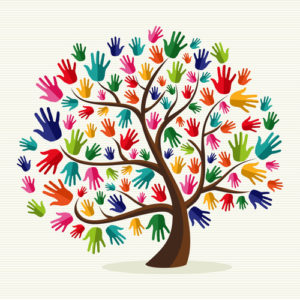What is Prudence?
 Prudence directs the other virtues like an orchestra conductor.
Prudence directs the other virtues like an orchestra conductor.
Deciding what to do and how best to do it is rarely simple. There are many factors to consider that affect our choice of action: time, place, circumstance, past history, our current resources, and the strengths and limitations of ourselves and others, to name a few. These factors are changing minute to minute as we make decisions throughout the day. Prudence allows us, through knowledge and experience, to look at the big picture. She coordinates and “commands” the other virtues, enabling our minds and hearts to work together to achieve the best action possible at each moment.
Here’s how Prudence works. Once we figure out the justice of the situation (to whom do I owe what at this moment?), our prudence calls in the right degree of courage and the right degree of temperance for the situation at hand. Because she directs all the others, prudence is called the “queen” of virtues. Two ways to grow in prudence are to observe what wise people do (and learn from the mistakes of the not-so-wise) and pray for guidance. Prudence guides us to make good choices and carry them out. We are interested in the good choices because they lead to happiness in the fullest realization of ourselves.
A slalom racer, for example, doesn’t win a gold medal by standing upright on a curve. He has learned by coaching and experience to lean and crouch down to get the most speed out of a turn. By making the best choices every second to achieve speed and control, he brings excellence to each moment in the race.
Practicing virtue, and prudence in particular, is like slalom. In skiing, you learn the basics and then practice them (wiping out now and then) until you can feel how much you should, for example, lean into a particular turn – how much to use your poles to speed up on the straightaway and how much to bend your knees for maximum speed. On the final coast to the finish line, a skier will hold his ski poles parallel to the ground without even thinking about it. He has practiced what brings success and it has become second nature.
The virtue of Prudence is the same – with coaching and practice, we harness all our skill to do in a natural way what leads to peace, harmony, and fulfillment. Prudence leads to peace and harmony because following God’s guidance in treating others with the respect they deserve makes for less friction and misunderstanding. Prudence leads to fulfillment because we are, like the skier, working with the “gravity” of God’s will, instead of against it. We are moving toward fulfilling our potential as people with a body and a soul and a purpose – to love and be loved.
Prudence puts freedom in a new light. We see that freedom never occurs in isolation, but always in relation to others. A child once asked his mother, “If God put me on earth to help others, what are the others here for?” Mutual help – to share with each other the love that God has shown us – is what we’re all here for. If freedom is freedom-to-love, then freedom is limitless. Freedom to love is the adventure of virtue. The virtues, and prudence in particular, are the tools that enable us to have the greatest freedom for excellence.










